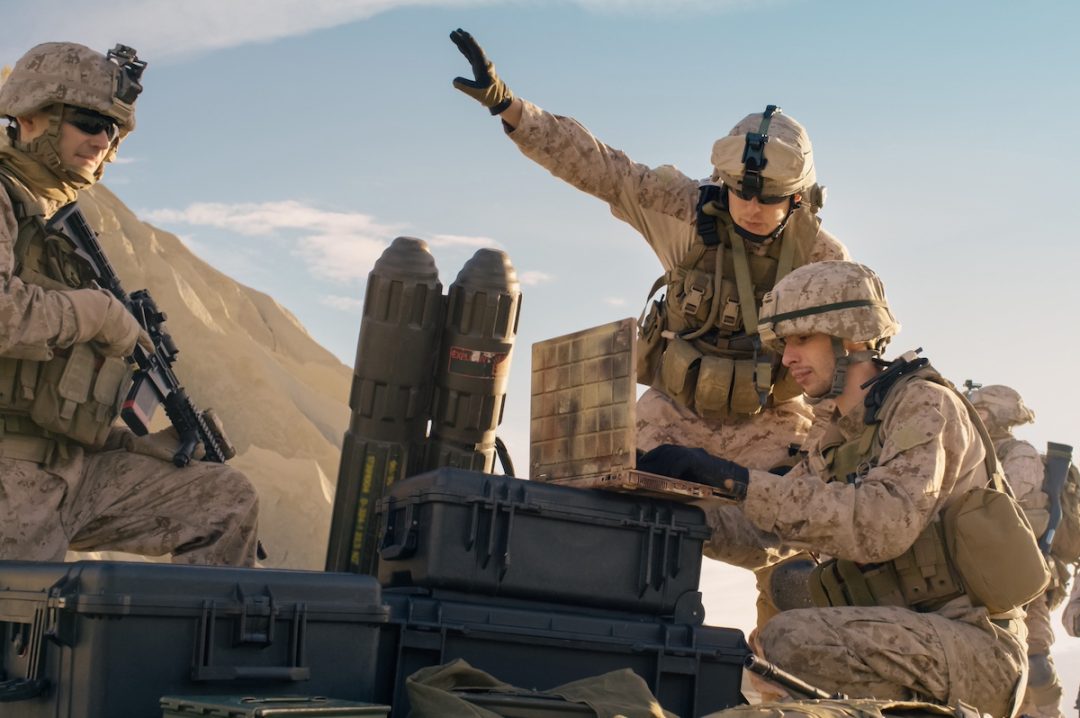
“If you want peace, prepare for war,” goes the adage. Yet in the U.S. in recent decades, it’s as if we’ve been preparing for peace while waging war. The result?
Our stockpiles of weapons are so dangerously low that we have only one to three weeks of munitions available for a major conflict. Worse still:
We no longer can produce weapons sufficiently fast to replenish these stocks during such a conflict.
For not only has our industrial base eroded, but with respect to weapons development, our government has become communist-like. As a consequence, the U.S. has largely lost her capacity to deter aggressors. This warning, and more, is in a sobering report issued not long ago by AI software giant Palantir.
Poised for Defeat?
As the tech company wrote in an October 31 press release:
Authored by Palantir CTO Shyam Sankar, “The Defense Reformation” calls for an invigoration of competition into the Defense Department, and a broader resurrection of America’s Industrial base. Sankar also outlines what has led to the current reality in which American industries cannot produce a minimum line of ships, subs, munitions and aircraft as well as why the country does not currently have the capacity or capability to rapidly repair and regenerate weapon systems. He then details 18 theses that will lead to the resurrection of the American Industrial Base.
… “We are in a state of undeclared emergency and have no time to waste in resurrecting the American Industrial Base we depended on in the depths of the Cold War,” wrote Sankar. “It was the American Industrial Base that underwrote American victory and Pax Americana….”
Not Alone
It may be tempting to dismiss the above as self-interest-based analysis, as Palantir does enjoy military contracts. In reality, though, Sankar isn’t alone in sounding this alarm. For example, as ForeignPolicy.com reported in May:
U.S. Defense Department officials profess to have learned one of the starkest lessons from the war in Ukraine: that high-intensity conflicts consume a huge number of munitions and that weapons production cannot rapidly expand. William LaPlante, the undersecretary of defense for acquisition and sustainment, coined the phrase “production is deterrence” in late 2023, and this mantra has been repeated by other senior leaders, including Deputy Defense Secretary Kathleen Hicks.
As for Ukraine, Sankar cited a striking statistic. “We spent 10 years of production of munitions in 10 weeks,” he related on Fox Business’ The Claman Countdown recently.
Then there was the warning issued last year by Air Force General James Hecker. As Breaking Defense wrote on July 12, 2023:
Amid a high tempo of arms transfers to Ukraine, the stockpile of US weapons and those of allies are getting “dangerously low,” the commander of US Air Forces in Europe (USAFE) said today. And worse, he warned, no “short term” fixes are on the horizon.
Immutable Law: Military Power Flows From Economic Power
In the Winter War (1939-40), tiny Finland was giving the invading power, the USSR, fits and was inflicting steep casualties. (A special forces soldier I know once told me the Finns were the best fighters he ever trained with.) Part of the reason the Finns ultimately had to sign a peace treaty and cede territory, however, is instructive: They ran low on munitions.
This illustrates a truth Sankar expresses in his theses thus: “Productivity is more lethal than weapon stockpiles.” He also writes, elaborating and providing perspective:
We have a peer adversary: China. “Near-Peer” is a shibboleth, a euphemism to avoid the embarrassment of acknowledging we have peers when we were once peerless. In World War II, America was the best at mass production. Today that distinction belongs to our adversary. America’s national security requires a robust industrial base, or it will lose the next war and plunge the world into darkness under authoritarian regimes. In the current environment, American industries can’t produce a minimum line of ships, subs, munitions, aircraft, and more. It takes a decade or two to deliver new major weapon systems at scale. If we’re in a hot war, we would only have days worth of ammunition and weapons on hand. Even more alarming is our lack of capacity and capability to rapidly repair and regenerate our weapon systems.
Given the vast sums we have spent on defense in these decades of Pax Americana, it would be reasonable to wonder: what went wrong?
Too Much to Count?
Much went wrong, in reality. But try this on for size: Interest alone on our staggering $36 trillion-plus national debt is $1.2 trillion. That’s not only a record, but surpasses military spending for the first time in history.
Put simply, we’re broke.
True, our debt-to-GDP ration of 122.3 percent isn’t as bad as No. 1 offender Japan’s 257 percent. It’s much worse, though, than China’s 24.6 percent.
But then there’s the deeper issue: Isn’t this really, at bottom, a moral problem? Would a virtuous people live beyond their means, electing politicians who spend like drunken sailors using daddy’s credit card?
In this vein, Americans’ priorities are misdirected precisely because of a lack of virtue. To analogize it, consider a man who’s hooked on drugs, alcohol, and sex. How likely is it that he’ll be responsible, showing up for work, supporting his family, and being a good father? Why, his main focus may just be getting the next fix.
Today’s America is that man — on a national scale. Just consider the things too many of us focus on. There are sexual devolutionary priorities such as so-called transgenderism and indoctrinating children with sexualized material. There’s destructive “diversity, equity, and inclusion” and identity politics, and the supposed “right” to kill unborn babies was a major issue this last election. Note, too, that some of these dark agendas and others pervade the military.
So the deeper problem isn’t our eroded industrial base, but our eroded moral base. The deeper problem is not our lack of weapons, though that matters. It’s that we’ve weaponized ourselves against ourselves.
For those interested, an interview with Sankar on The Defense Reformation is below.


